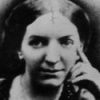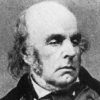If anything does happen to me, I shall fall with a contented and prepared mind; and, indeed, death cannot be disgraceful to a brave man, nor premature to one of consular rank, nor miserable to a wise man.
[Si quid obtigerit, aequo animo paratoque moriar. nam neque turpis1mors forti viro potest accidere neque immatura consulari nec misera sapienti.]
Marcus Tullius Cicero (106-43 BC) Roman orator, statesman, philosopher
Orationes in Catilinam [Catilinarian Orations], No. 4, § 2, cl. 3 (4.2.3) (63-12-05 BC) [tr. Yonge (1856), 4.3]
(Source)
(Source (Latin)). Alternate translations:
if any thing should fall out amiss, I shall be contented and ready to die: For Death can never come dishonourable to a Valiant Person, nor untimely to him that is Consular, nor unfortunate to a Wise man.
[tr. Wase (1671), 4.3]
If I am doomed to fall a sacrifice in your cause, I am resigned to my fate. To a well-prepared spirit death can never be dishonourable; to a consul never premature; to a wise man it never can be an evil.
[tr. Sydney (1795)]
If anything shall happen to me, I shall die with a mind contented and prepared. For neither can a disgraceful death happen to a brave man, nor an untimely one to a man of consular rank, nor a wretched one to a wise man.
[tr. Mongan (1879), 4.2]
If any (thing) shall have befallen, I shall die with an equal and prepared mind. For neither a base death is able to happen to a brave man, nor an immature (death) to a consular (man), nor a wretched (death) to a wise man.
[tr. Underwood (1885), 4.2]
If any (thing) shall have befallen, I shall die with an equal [a calm] and prepared mind. For neither a base death is able to happen to a brave man, nor an immature (one) to a consular (man), nor a wretched (one) to a wise (man).
[tr. Dewey (1916), 4.2]
Death cannot be dishonorable to the brave man, or premature to him who has held high office, or lamentable to the philosopher.
[Source]
Quotations about:
equanimity
Note not all quotations have been tagged, so Search may find additional quotes on this topic.
Where other powers of entertainment are wanting, the true philosopher will derive benefit from such as are given.
Always it is, that the hearts in the younger men are frivolous,
but when an elder man is among them, he looks behind him
and in front, so that all comes out far better for both sides.[Αἰεὶ δ’ ὁπλοτέρων ἀνδρῶν φρένες ἠερέθονται·
οἷς δ’ ὁ γέρων μετέῃσιν ἅμα πρόσσω καὶ ὀπίσσω
λεύσσει, ὅπως ὄχ’ ἄριστα μετ’ ἀμφοτέροισι γένηται.]Homer (fl. 7th-8th C. BC) Greek author
The Iliad [Ἰλιάς], Book 3, l. 108ff (3.108-110) [Menelaus] (c. 750 BC) [tr. Lattimore (1951)]
(Source)
Alt. trans.:
All young men’s hearts are still unstaid; but in those well-weigh'd deeds
An old man will consent to pass things past, and what succeeds
He looks into, that he may know, how best to make his way
Through both the fortunes of a fact, and will the worst obey.
[tr. Chapman (1611), ll. 113-16]
And youth itself an empty wavering state:
Cool age advances, venerably wise,
Turns on all hands its deep-discerning eyes;
Sees what befell, and what may yet befall,
Concludes from both, and best provides for all.
[tr. Pope (1715-20)]
Young men are ever of unstable mind;
But when an elder interferes, he views
Future and past together, and insures
The compact, to both parties, uninfringed.
[tr. Cowper (1791), ll. 124-27]
For the minds of younger men are ever fluctuating; but for those among whom a senior is present, he looks at the same time both backward and forward, in order that the best results may accrue to both parties.
[tr. Buckley (1860)]
For young men's spirits are too quickly stirr'd;
But in the councils check'd by rev'rend age,
Alike are weigh'd the future and the past,
And for all int'rests due provision made.
[tr. Derby (1864), ll. 130-34]
Young men's minds are light as air, but when an old man comes he looks before and after, deeming that which shall be fairest upon both sides.
[tr. Butler (1898)]
Ever unstable are the hearts of the young; but in whatsoever an old man taketh part, he looketh both before and after, that the issue may be far the best for either side.
[tr. Murray (1924), #95]
The younger men
are changeable; he in his age among them,
looking before and after, can see clearly
what shall be in the interests of all.
[tr. Fitzgerald (1974), l. 128ff]
The minds of the younger men are always flighty,
but let an old man stand his ground among them,
one who can see the days behind, the days ahead --
that is the best hope for peace, for both our armies.
[tr. Fagles (1990), ll. 131-34]
Always in fact do the spirits in younger men flutter unsteady;
but with an elder among them, at once the before and the after
he can observe, so that things will become far better for both sides.
[tr. Merrill (2007), ll. 108-110]
It is the trifles of life that are its bores, after all. Most men can meet ruin calmly, for instance, or laugh when they lie in a ditch with their own knee-joint and their hunter’s spine broken over the double post and rails: it is the mud that has choked up your horn just when you wanted to rally the pack; it’s the whip who carries you off to a division just when you’ve sat down to your turbot; it’s the ten seconds by which you miss the train; it’s the dust that gets in your eyes as you go down to Epsom; it’s the pretty little rose note that went by accident to your house instead of your club, and raised a storm from madame; it’s the dog that always will run wild into the birds; it’s the cook who always will season the white soup wrong — it is these that are the bores of life, and that try the temper of your philosophy.
Ouida (1839-1908) English novelist [pseud. of Maria Louise Ramé]
Under Two Flags, ch. 1 (1867)
(Source)
Leave well — even “pretty well” — alone: that is what I learn as I get old.
Edward FitzGerald (1809-1883) English writer, poet, translator
Letter to W. F. Pollock (7 Dec 1869)
(Source)






